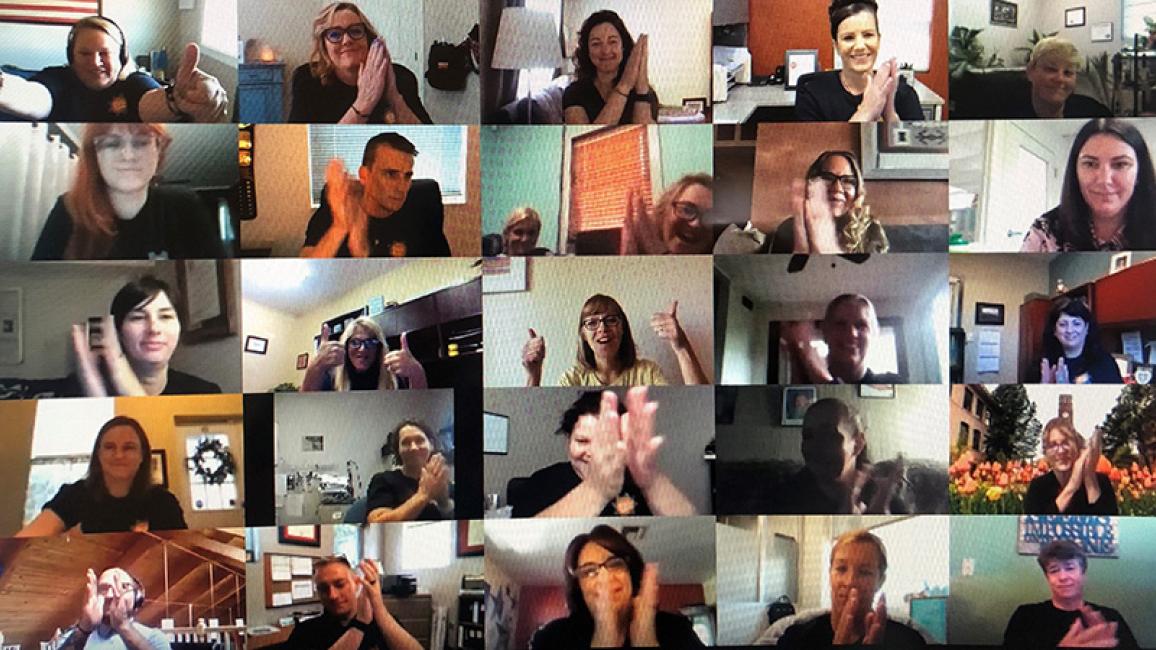Creating a professional lifeline for 23 remarkable animal shelter leaders during the pandemic

For me, the hallmark of any transformational learning experience is how well it prepares you to perform during times of crisis and overcome adversity. That fundamental resilience is something that I was fortunate to develop during my college days at Southern Utah University (SUU), and it continues to serve me in remarkable and unexpected ways today. That’s why it’s also a primary thread running throughout the Best Friends Executive Leadership Certification (ELC) program, which is recognized and operated in partnership with SUU.
When we launched this unique program last year, we knew it would be the nation’s first university-endorsed leadership program focused on saving pets in shelters, and we knew it would be pivotal in creating professional pathways for leaders committed to the no-kill goal. Of course, what we didn’t know was that we happened to be rolling it out at one of the most critical moments in the history of our field and our nation. Last month, the program’s second cohort, comprising 23 amazing animal shelter leaders from 12 states, completed their coursework and graduated. The backdrop for this accomplishment: the COVID-19 pandemic.
What's interesting about crafting a professional development program for no-kill leaders is that you start with a baseline state of crisis. Animals’ lives are on the line every day and ensuring that shelter leaders are equipped with the complex skill set and professional knowledge base needed to save them has very real consequences. This is what makes the no-kill philosophy so powerful. You start with lifesaving and embrace the fact that your journey will be an uphill climb.
This unique group of ELC grads started their program back in February with an in-person learning experience in New Orleans. Then, in March, the reality of the coronavirus hit and stay-at-home orders rolled out in waves across the country, bringing a range of emergency operations and shut-down orders for animal shelters and services. Just like that, the entire ELC class (along with their sheltering colleagues throughout the country) was faced with the monumental task of safeguarding the animals in their care and continuing to serve their communities while being forced to close their doors and comply with whatever local mandates were in place.
So, when these students met for an emergency Zoom call on a Saturday in March and were given the choice to press pause on their semester or continue, the choice for them was obvious. Everyone voted to keep going because this professional development program was now their lifeline at an unprecedented time and they were ready for the challenge.
Over the course of the semester, the curriculum was shaped and paced to focus on problem-solving in real time for the ELC students. Every Friday, the class met for a 90-minute call to focus on what each shelter leader needed help with at that moment to manage daily operations, lead their teams and save lives. Shelters that had been hesitant to start foster programs in the past were now creating them overnight to move as many animals as possible out of the shelter and into homes. Animal services agencies that had never implemented managed intake (a data-driven and common-sense approach for managing the number of animals entering a shelter at a given time) were now faced with the need to do so within just a few days to prevent animals from being killed.
Some shelter directors who, up until this point, had only known their jobs as they existed within their physical shelter facilities were now running their city or county operations from home. Other leaders who suddenly found themselves with essential staff members out sick and/or quarantined at home were now cleaning kennels, emptying litter boxes, and walking dogs in the morning while coordinating emergency animal services and revamping their business plans at night. In some cases, shelter directors even endured public scrutiny, criticism and potential termination as they worked tirelessly to implement essential lifesaving programs unfamiliar to their local governments.
Any one of these challenges might have crippled isolated individuals working on their own, but the ELC program served as a vital resource and source of support. Students in the program supported one another and overcame numerous challenges together. The ELC graduates from the first cohort joined the lifesaving party and routinely participated in troubleshooting calls, offering mentoring and expert help throughout the semester. If one student needed help crafting a letter to her municipality to justify her decisions so she could save more pets, ELC staff and fellow students were there to help.
In addition to pivoting their shelter operations overnight in the face of COVID-19, this incredible class of leaders completed all of the coursework in the ELC curriculum, wrote new business plans, created lifesaving action plans based on shelter data analysis, crafted visionary leadership and organizational mission statements, and expertly guided their staff through day-to-day operations alongside ongoing racial justice protests near their facilities. Several students from both the first and second cohorts are also working on a master’s degree through SUU with an emphasis on contemporary animal services leadership. How’s that for a spring semester?
Tawny Hammond, who heads up our ELC program alongside my fellow SUU alumna Aimee Charlton, has a beautiful way of characterizing the type of leaders who participate in this kind of learning experience:
Animal services folks like these leaders aren’t fazed by adversity. They have the heart and soul of social workers, of first responders. They run toward the fire, not away from it. This program is about supporting professional practitioners who are positive risk-takers. The ones who will put their own jobs in jeopardy to try new things that will save lives. It’s our job to be a lifeline for them.”
Congratulations to this spring’s graduating ELC class. You lit up the darkness of 2020 with your grit, passion and collaborative spirit — and we can’t wait to see what you do next.
